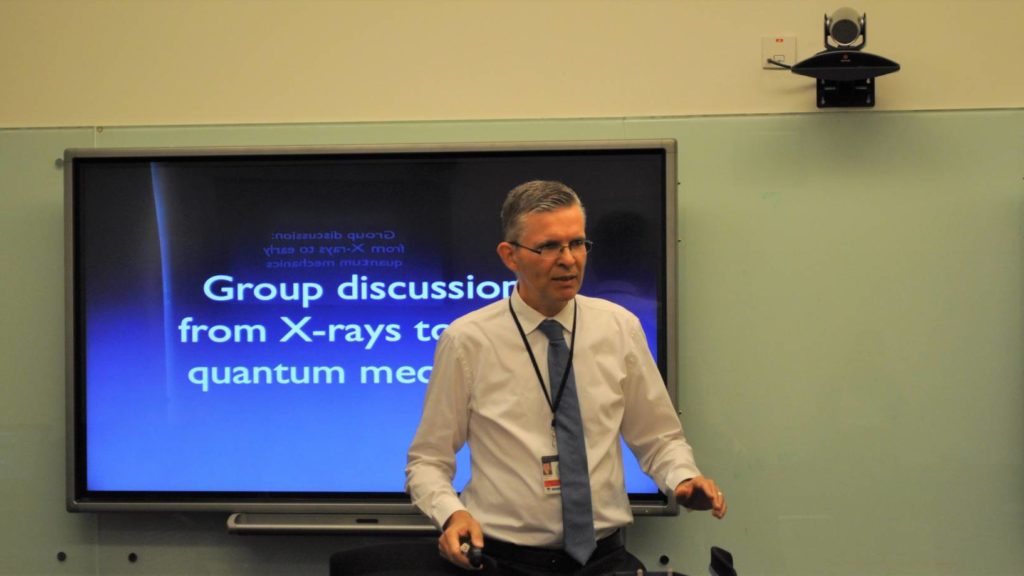Scientific knowledge affecting public policy now required for Georgetown’s future policymakers “Nuclear Know How For Presidents” Now Part of Core Curriculum

What do the social sciences and humanities have to do with nuclear physics? According to Dr. Kai-Henrik Barth, the professor teaching Georgetown University in Qatar’s first required natural science course this semester, the answer is “everything.” His course, Nuclear Know-How for Presidents, gives students majoring in economics, history, culture, and politics, an introduction to the science behind nuclear weapons and an understanding of why that knowledge matters for policy makers, not just for scientists.
“From the Iran Deal and North Korea’s nuclear weapons program, to Fukushima and Chernobyl, it’s clear that nuclear technologies continue to shape international politics. Now more than ever, global leaders need to be able to understand scientific arguments in order to make informed decisions on issues that will have a tremendous impact on our world,” explains Dr. Barth, who studied nuclear physics in his homeland of Germany, before receiving his Ph.D. in the History of Science and Technology from the University of Minnesota.
“I am really pleased that through this course, students will gain a broad understanding of nuclear science and technology, in both military and civilian applications, so they are better prepared to engage in discussions and debates on the complex issues surrounding nuclear weapons and nuclear energy,” said Dr. Barth, who is also the Senior Assistant Dean for Research Support at GU-Q.
Ayesha Iqbal, a second-year student majoring in International Politics, had considered a career in physics before a love of politics brought her to GU-Q. With required readings including books by nuclear physicists, the curriculum is rigorous enough to challenge, without being overly technical. “I didn’t expect to go this deeply into technical concepts of nuclear physics, so I’m really enjoying it.”
With hopes of pursuing a career in security studies and defense policy, she says the science has helped her understand the stakes involved. “Studying the amalgamation of nuclear physics and politics has made me take any headline I see on CNN or BBC about nuclear programs or nuclear threats far more seriously. These aren’t just abstract diagrams and concepts in my physics coursebook anymore. The threat is real, and leaders are gambling with something that has the capacity to cause incalculable harm.”
This course isn’t GU-Q’s only foray into the issue of nuclear technology. Dr. Barth also spearheads the university’s partnership with the Qatar Ministry of Defense’s National Committee for the Prohibition of Weapons (NCPW), a joint initiative that raises student awareness about the dangers of weapons of mass destruction (WMDs).. And the school is exploring possibilities of expanding its natural science offerings in the future as well. “For students in the social sciences and humanities,” says Dr. Barth, “scientific literacy is
a life skill.”